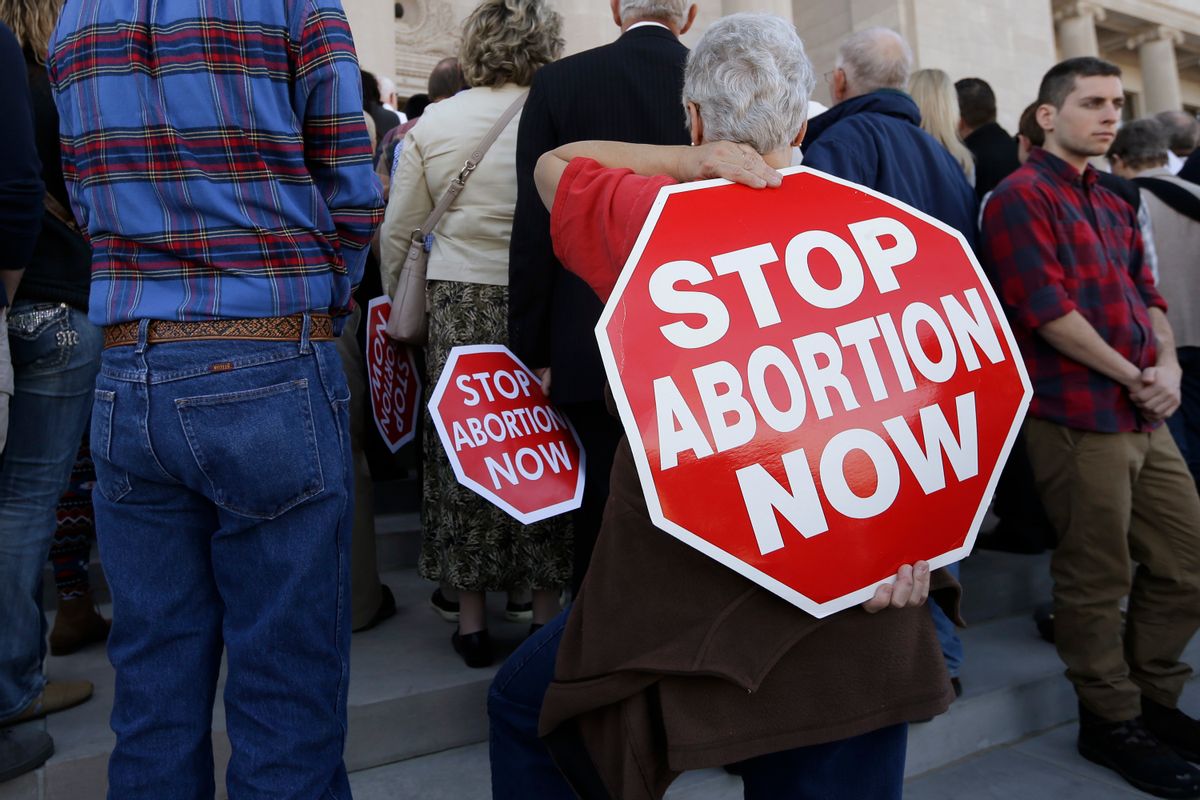Texas Republicans have introduced two measures that would publicize the names of judges and courts that hear cases related to minors obtaining abortions. Supporters of the bills call them a move toward transparency and accountability, while opponents say the measures are meant to intimidate judges and cut off abortion access.
If either measure passes, Texas would become the first state to make public personally identifying information about the judges and courts involved in “judicial bypass” cases. Critics say this could have a chilling effect, leaving minors with even fewer options.
“Nobody knows what decisions they make, nobody knows if this really is a pro-choice or pro-life judge or whatever because the decisions aren’t public,” Ben Lancaster, chief of staff for Republican state Rep. Ron Simmons, told the Dallas Morning News. Simmons is the sponsor of the measure that would make public the names of judges who oversee these cases.
But making such information public could intimidate judges, said Elizabeth Nash of the Guttmacher Institute. “That raises a lot of red flags when you start asking for very specific information about the judge or the county or the type of court,” she explained. “That could potentially be used against them and could be a way to encourage judges not to grant these petitions.”
Susan Hays, a Dallas lawyer who represent minors in judicial bypass cases, put a finer point on it in a comment to the Morning News. “They want the judges’ heads on a plate,” Hays said. “It is absolutely the goal to punish them at the ballot box.”
There are 38 states that require a parent be informed (or, in some states, give consent) before a minor can have an abortion, but judicial bypass allows young people to work around this requirement. It can be an arduous process, but it’s often invoked by young people who can’t involve their parents in their decision for any number of reasons, including parents who have been deported, incarcerated or guardians who were never granted legal guardianship. Violence -- a history of abuse and the threat of violence -- is also a reason given by many young people seeking judicial bypass.
Jane’s Due Process, a Texas organization that provides legal counsel to minors seeking judicial bypass, collects stories from the teens they work with. Violence factors into most, if not all, their testimonials.
Here’s one:
My father has beaten me. He put me in a convent for 6 months for smoking. My cousin was sent away from her family when she got pregnant because she wasn't married. Can you imagine what my father would do to me for this? He's also threatened to hurt my boyfriend.
And another:
When I told my dad I was pregnant the first time and that I wanted to have an abortion, he told me that it would never happen. He said that I needed to be punished. He told me I would have the baby and that he would beat me for the next 7 days. For 7 days, he beat me with his belt. After I moved out, he used to come by my house and yell at me 'to get ready' as he took out his belt so he could 'punish' me more.
And another:
Yes, my mother has told me more than once that if I get pregnant, she will beat that baby out of me. I believe her.
Reproductive rights activists and child advocates also say the laws could make an already dire situation much worse. Even with the status quo, many minors can’t access judicial bypass, according to research from Jane’s Due Process.
More from Houston Press:
[M]ore than a third of the counties [Jane’s Due Process] called said they didn't handle judicial bypasses or couldn't provide any of the paperwork necessary to file an application (essentially refusing girls the option); nearly half of the counties gave the caller inaccurate information about the process; the clerk's office employee in one county told the caller she was an "advocate for crisis pregnancy centers," state-funded centers that offer pregnant women dubious and scientifically inaccurate information in hopes of persuading them not to have an abortion, and asked the caller to meet her in person after work to talk about her options; another clerk's office simply hung up on the caller.
Despite the very real threat such a law would pose to young peoples’ health and safety, supporters of the measures say they want to "protect" minors. Texas Right to Life calls judicial bypass a “loophole” that has been “exploited by the abortion industry.”
“This judicial bypass loophole supersedes parental rights and authority and endangers our young girls in Texas,” reads a statement on the group's website.
h/t Mother Jones

Shares